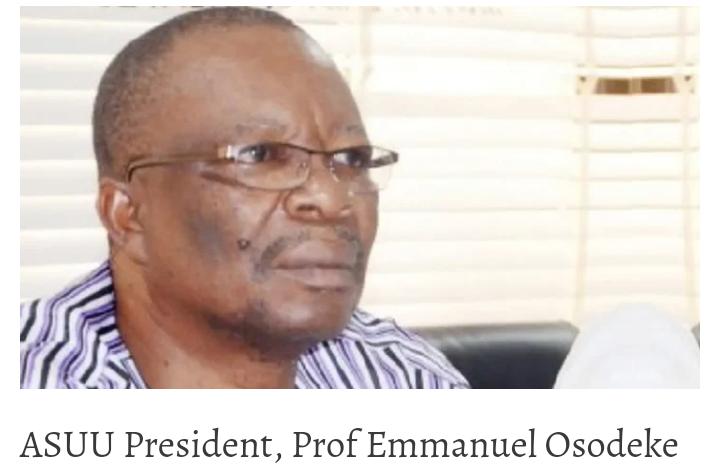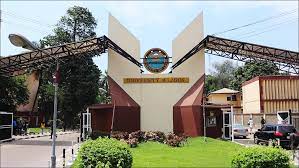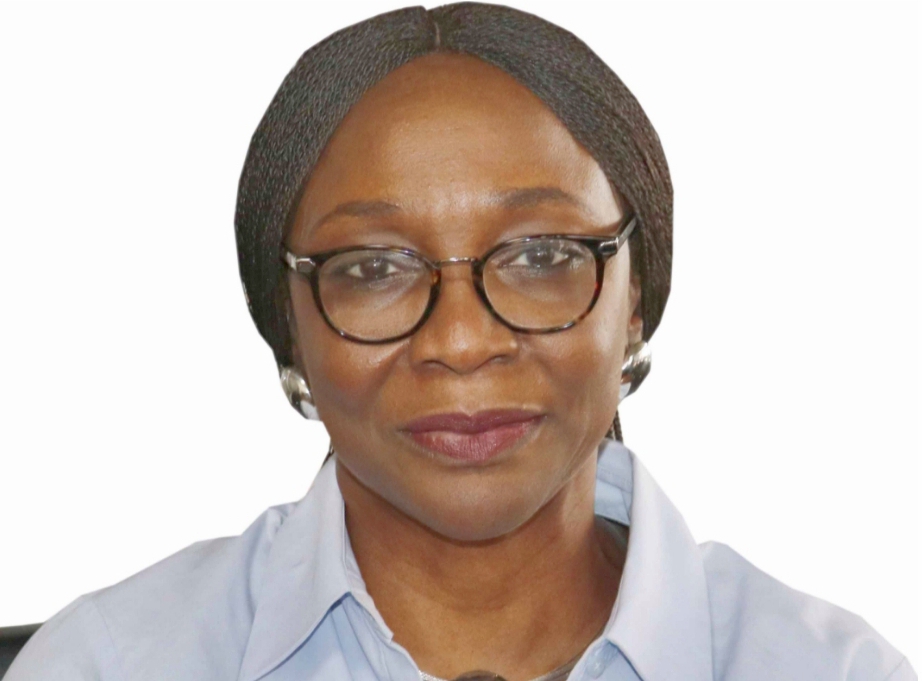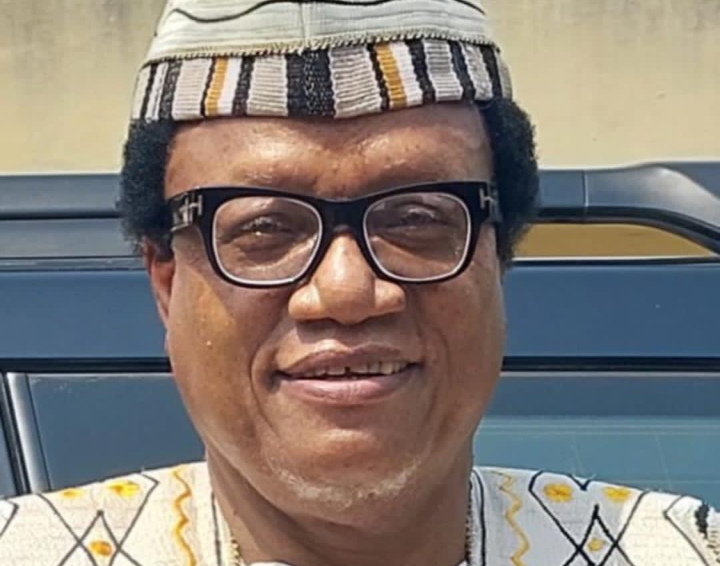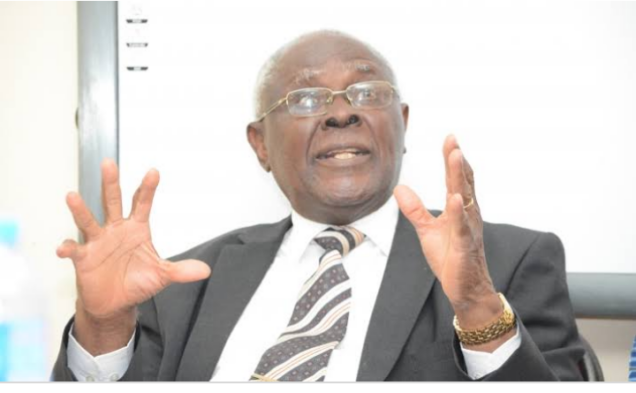By Udeme Nana
At Lagos last week, an outstanding feature of the 60th convocation of the University of Lagos established in 1962 was graduation of two octogenarians. One of them, Dayo Duyile, who bagged a PhD in Mass Communication at 83 years of age became the oldest graduate of the 61 year old Institution. It is on record that as a young News Reporter, he covered the first convocation of the University. This old but fresh graduate is not yet done with academic pursuits as he has resolved to sustain his enthusiasm so he could become a Professor in his chosen field of study. Duyile has seen it all in Journalism practice , having had stints in various news outlets like Drum magazine, Daily Sketch, Concord Newspapers and as an Administrator and Teacher but his appetite for everything books has not waned. Rather, it seems to increase by the day. He still wants to study , defy poor electricity supply in his country and read more in order to achieve his life long aspiration.
In Ikot Ekpene, Akwa Ibom State over the weekend, precisely on Saturday, at the first reading session of the Raffia City Book Club, an intellectual hub hosted at the Esu Centre along Royal Close off Ephraim Essien street in the serene GRA , students, youths and older folks gathered as they often do on the third Saturday of every month to read and promote social reading , an 82 year old man , a Professor and Bishop who had settled everything about certificates and academic status in his field took the floor to recite, off hand, a poem he learnt in 1949 ! The poem ‘Little by Little’ which author is unknown describes how an acorn, a tiny seed “improves and enhances itself over the years as it lies buried in the ground. The root of the ground grows downward. Simultaneously, a tiny shoot of the plant appears above the ground and thereafter the leaves appear on it” . The story records that ‘soon after, the slender branches of the tree spread across everywhere and subsequently, the acorn grows into a mighty oak tree ” !
The morale of the poem which the 82 year old Professor passed on to the impressionistic teenagers comprising students of St Joseph’s Secondary School, Okon, Essien Udim LGA and other readers at the session was that an ‘acorn represents resolve, strength and potential and that every child ‘can grow up to become a wise and an intelligent individual’ and dominate his environment like “the mighty acorn tree” if only such a child is focused. That lesson has proved true in the life of Dayo Duyile, Ahaziah Umanah and others including former Heads of State General Yakubu Gowon who went to study in the University of Warwick after serving as Nigeria’s Military Head of State for 9 years and another Head of State who became a civilian President, Chief Olusegun Obasanjo who earned a Diploma in Theology from the National Open University of Nigeria after he became an octogenarian. The examples of these men and several others confirm that until one dies , personal growth cannot be stopped. Unless the individual stops it . These reading old folks are role models and their trajectories should inspire others, both old and young because no matter the present rot in the education in Nigeria , education can never totally regress into a ‘bad market’.
The Raffia City Book Club which seeks to mobilize people to embrace the culture of social reading used its first meeting of the year to celebrate the birthday of Professor Umanah, a certified Chaplain, who is one of its Patrons. Professor Umanah,who studied in Rust College,Holy Springs, Mississippi and the University of Iowa, United States of America and taught there has made contributions in both public service and in the academia.
On hand to talk about the celebrant who earned Diplomas and degrees in Agriculture, English and Humanities, Journalism, Mass Communication and Sociology was 72 year old Engineer turned Journalist, Nsikak Essien, a Fellow of the Nigerian Guild of Editors ( FNGE) who served as the Editor of the defunct National Concord Newspaper in Nigeria from 1989 to 1995. In his review of one of the books authored by Professor Umanah – The Peoples Right to Know – a print version of the content presented by Professor Umanah on Radio over the years , Mr Essien described the book as a ‘telescopic look at Nigeria from it’s birth’. He highlighted other topics in the book to include the following “I cry for my beloved country” , ‘Is Nigeria a Failed State’ ? “How to Redeem Contemporary Nigeria from total destruction”, ‘Religion and Nation Building, the case of Nigeria and the Place of Education in the development of a functional democracy for Nigeria’. The last topic seems to unfurl the ideology of the book club initiative which has sprouted and is growing like oak trees across Akwa Ibom State and Nigeria because democracy thrives better in a society where the vast majority of the citizens are enlightened. And what else enhances enlightenment than education ?
The 197 paged book with 22 chapters also has topics on Human Rights, Children’s Rights and Corruption with the topic”The Sociology of Corruption”. Can any book be written about Nigeria without a look at corruption ? That was a rhetorical question posed by Nsikak Essien.
Another focal point of the evening was the review of yet another book “Living A Life that Matters” by Harold Krushner. That task was handled by Dr Catherine Akpan, a teacher of English language. The thesis of Krushner’s book is that a life that matters must impact positively on the society.
There is no doubt that the lives of Dayo Duyile and Ahaziah Umanah have touched positive chords in the society.
On that occasion, the curator of the Esu Centre and host of the Raffia City Book Club, Tony Esu, a former Member of the House of Representatives urged the visiting students and others at the session to emulate the life of Professor Umanah,who ,at 82 was still reading and writing a lot.
This writer only knows Dayo Duyile by reputation, on the basis of his strides and contributions in journalism, and so cannot determine his present physical attributes but having known and related closely with Professor Ahaziah Umanah, his ‘egbon’ back here in Akwa Ibom State, one can report that Professor Umanah is still fresh, physically, emotionally stable and mentally alert. He is energetic, walks straight and boldly. His voice is still very strong. That strong voice still booms through the airwaves in the presentation of his program on his privately owned Redemption Radio 101.5 FM which broadcasts from Abak.
Is there a correlation between reading and springs in one’s legs ? It is written elsewhere that at the smell of water , brown grasses and leaves on seeming dead trees turn lush green . Can one note rightly that avid readers age more gracefully and remain more mentally alert than their non – reading age mates ?
Dr UDEME NANA, a Mass Communication Scholar is the Founder of Uyo Book Club and the Progenitor of the Book Club initiative in Akwa Ibom State.


